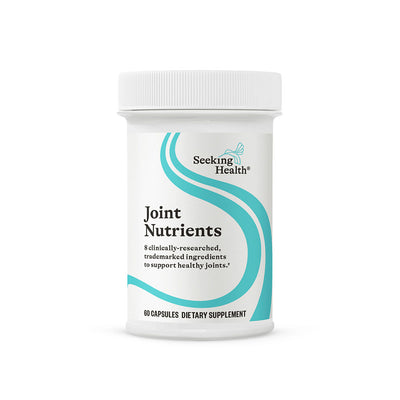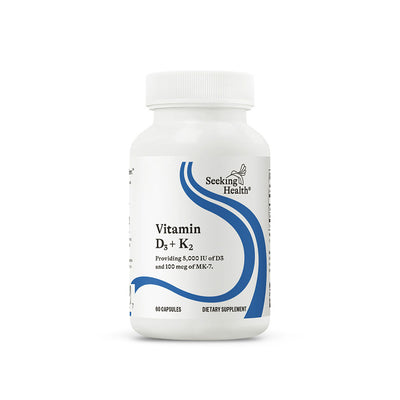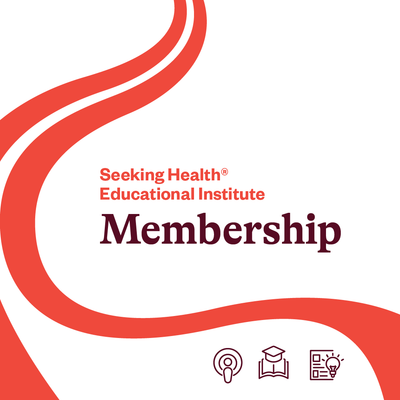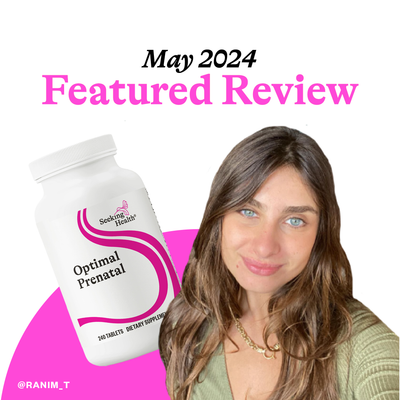If you’re older than 35 and you’re ready to get pregnant, chances are you’ve encountered the words “advanced maternal age.” While those words don’t inspire confidence, it does not mean that you won’t be able to have a healthy baby.
This is just the standard wording used to refer to women who are 35 or older and trying to have a baby.
Yes, fertility naturally declines with age. But not everyone will struggle to conceive immediately when they turn 35. Knowing your health and your genetics can help you support your fertility, no matter your age.
Believe it or not, the American medical community used to call pregnancy after age 35 a “geriatric pregnancy.” Thankfully, the term is rarely used anymore. Trying to conceive over age 35 doesn’t mean you’ll have to wait a long time to get pregnant or won’t have a healthy pregnancy. These things can happen at any age, regardless of age or health conditions.
Fertility is a wild card. So is pregnancy. But that doesn’t mean you’re powerless. There are many evidence-based ways to support your fertility and chances of conceiving at age 35 or older.
Factors That Affect Fertility

People of any age can experience fertility challenges. These can occur for many reasons, including: (1)
- Age of both partners
- Health conditions in both partners
- Having irregular periods
- Being a smoker (or using other drugs) in both partners
- Drinking alcohol regularly in both partners
- Taking certain prescribed medications or undergoing medical treatment in both partners
- Genetics in both partners
- Structural or physical abnormalities in both partners
The Biological Clock

Many women are annoyed by the concept of a biological clock. In a society where more people are delaying parenthood into their thirties and sometimes even forties, it’s important to understand that a “biological clock” isn’t ageism. It’s just a biological reality. Here’s how it works in females.
Women are born with all the eggs they’ll ever have. Eggs mature in follicles, which “sprout” in the ovaries every cycle. At birth, a woman typically has around one million follicles. At puberty, a female may have around 300,000 follicles left. Multiple follicles develop every cycle, but usually, only one becomes dominant and produces an egg. Over the course of a woman’s reproductive life, she’ll only use around 300 to produce eggs.
So what happens to the hundreds of thousands of follicles that are lost in a woman’s lifetime? Most assume that follicles only expire after they’re used for ovulation. The truth is that follicles dissipate in a process known as atresia. This is a normal degenerative process that happens regardless of age, lifestyle, health conditions, or anything else. The only thing that seems to speed atresia more is being a smoker. Smokers tend to run out of follicles a year or more sooner than non-smokers. (3)
When people refer to a “biological clock,” they’re actually referring to the natural process of follicular atresia. When no follicles remain, a woman enters menopause and can no longer conceive on her own. Women are typically considered to have declining fertility starting at age 35 with few, if any, follicles remaining by age 45. Some women want to know the specific number of eggs that they have left, but it’s not possible to know that.
But in that last decade of fertility, even with supposed declining rates, it’s still more than possible to conceive! While the facts may feel bleak, it’s all about managing your own personal health factors and doing what you can to produce high-quality eggs from the follicles that you do have. You don’t need hundreds of thousands of follicles. You only need one to produce a healthy egg, to connect with a healthy sperm, to create a healthy embryo, to implant in the lining of your uterus, and so on.
A biological “clock” is a reality, but it doesn’t get to decide your final outcome.
With advances in advanced reproductive technology, women have successful pregnancies after age 45. Although the inaccessibility of fertility treatments and complications surrounding egg donors or embryo adoptions make the issue far from a simple answer to solving natural fertility decline.
You can’t control many aspects of your fertility. That’s why it’s important to focus on what you can control, and not be afraid of what you can’t.
Statistics for Pregnancy After 35
For a woman with uncomplicated fertility, the odds of getting pregnant begin to decline starting in the early 30s. The change is slight and continues to drop off naturally. By the late 30s (or around age 37), the decline speeds up. (4)
In peak fertility years (the 20s through 32), 1 in 4 women will conceive on any given cycle. By age 40, it’s around 1 in 10 women. (5)
However, these odds can be improved by ensuring that intercourse is timed appropriately with ovulation. (4)
Many women don’t ovulate on cycle day 14, and this can dramatically impact the chances of conceiving. If you ovulate early, on cycle day 11, and don’t have intercourse until cycle day 13, you’ve missed your chance of getting pregnant that cycle. You don’t need to have sex every day for a week—and you shouldn’t if your partner’s sperm count is low or they’re dealing with infertility, too. You only need to be smart about the timing.Be smart about the timing when you are trying to conceive. Track your ovulation cycle.
Fertility Treatment After 35

Infertility can be treated in many ways. If you’re dealing with infertility over age 35 for non-age-related reasons (like PCOS or endometriosis), the treatment protocol doesn’t really change based on age alone. There are standard health care protocols for these conditions. Age may lead to additional supports or needs.
If you’re having trouble conceiving because of unexplained infertility, and age seems to be involved, there are few treatments that can address age-specific factors. You can do in vitro fertilization (IVF) with donor eggs or embryos, but there’s not much else you can do to essentially make time go backward. Assisted reproductive technology has had many advances in recent years, but it can’t make your eggs younger.
But there is good news.
Natural Fertility Support for 35 and Older

Research has found that some nutrients can support healthy aging and fertility in both men and women. Oxidative stress occurs naturally in response to many things. Smoking, inflammation, and stress are three common reasons. Natural aging processes are another.†
Research on fertility noted that reducing reactive oxygen species (ROS) and supporting the body’s natural antioxidant defenses can benefit fertility. ROS, also known as free radicals, naturally occur as part of the aging process. By eating an antioxidant-rich diet and supporting the body with key micronutrients, some parts of age-related fertility decline can at least be slowed.†
Certain nutrients play vital roles in fertility health.†
Certain nutrients play a role in the antioxidant defense system for eggs. Others support healthy DNA synthesis, methylation, fertilization, and implantation. Having ample stores of these nutrients is crucial for promoting healthy fertility in women over age 35. The following nutrients are supportive for:† (6)
- Folate: Egg quality, methylation, homocysteine metabolism, atresia (normal follicle degradation), apoptosis (normal cell death, which is necessary for corpus luteal degradation and normal endometrial shedding), fertilization, embryogenesis (embryo development), and implantation.†
- Zinc: Ovulation regularity, menstrual cycle support, DNA synthesis, and normal apoptosis and atresia.†
- Vitamin A: Egg quality, blastogenesis (embryonic development), defends against ROS, promotes antioxidant defenses.†
- Vitamin D: Normal vitamin D receptor response (located throughout all reproductive tissue), reduced time to pregnancy, homocysteine metabolism, inflammation regulation, oxidative stress management, and embryogenesis.†
- B vitamins: DNA synthesis, methylation, homocysteine metabolism, and more.†
- Selenium: Healthy uterine lining, progesterone balance.†
- Iron: Nutrient and oxygen transport, uterine lining, embryogenesis.†
- Vitamin C: Supports the body’s normal defense against ROS, promotes healthy antioxidant levels, supports collagen production for cervix strength.†
- Vitamin E: Antioxidant defense, supports a healthy response to ROS damage.†
- Copper: Supports the formation of superoxide dismutase (SOD), an important antioxidant defense enzyme that counters ROS and protects DNA.†
Generally speaking, women who have trouble getting pregnant, regardless of age, have lower levels of certain nutrients. These include:† (6)
- Vitamin B12
- Vitamin B6
- Vitamin D
- General antioxidant status
- Folate
- Calcium
- Iodine
- Iron
- Selenium

You don’t have to eat a specific fertility diet, but when you’re trying to get pregnant over age 35, it’s important to make sure your nutrient bases are covered. This may be done with a high-quality prenatal vitamin and other targeted supplements. Make sure you’re working with your OBGYN to ensure you’re taking what’s right for you.†
Regular physical activity and healthy levels of sleep are also two factors that, regardless of age, play a major role in fertility. But they become even more important as you contend with decreased fertility. Being active and getting good sleep supports healthy DNA synthesis, decreases inflammation, and supports healthy antioxidant levels in your body. It also promotes better digestion and insulin balance, which you need to optimally digest and break down all of the micronutrients.
You can’t cheat time, but you can certainly give your body what it needs to produce high-quality eggs.
Quality, much more than quantity, is what counts when you’re trying to get pregnant.
Quality over quantity is true at any age, but has more notable results in women who are older.
Pregnancy in Women Over 35
These are all mostly out of your control, but can be impacted by what you do before conception.Once you do get pregnant, you’ll continue working with your health care provider for prenatal care. You’ll likely have more appointments than younger women, and more screening tests may be offered to ensure you get high-quality care. Consider finding an experienced MFM (maternal fetal medicine doctor) specializing in advanced maternal age pregnancy.
The Bottom Line
You can get pregnant over age 35. For many, age is an arbitrary number and your natural fertility may not decline for years after that. Some women may also experience premature ovarian failure, where their fertility declines sooner.
The point is that while age is just a number, there are proactive and effective ways to support your fertility at any age. You just may need to be more intentional about it over age 35… and a little more patient to get that positive test.
Click Here for 6 Helpful Tips When You’re Trying to ConceiveThe American College of Obstetricians and Gynecologists says that if it’s taking longer than 6 months to get pregnant, even if you’re sure you’re ovulating, it’s time to check in with a fertility specialist for an evaluation. Keep in mind that happy endings come in many forms – whether you become pregnant with your own eggs or donor eggs, utilize a surrogate, become a parent through adoption, or ultimately choose to have a child-free life – there is no single right way to have a happy ending. Happy endings are indeed possible even after age 35, so most importantly, keep an open mind and keep the faith.
References
- https://www.cdc.gov/reproductivehealth/infertility/index.htm
- https://www.nichd.nih.gov/health/topics/infertility/conditioninfo/common
- https://www.ncbi.nlm.nih.gov/pmc/articles/PMC6429023/
- https://academic.oup.com/humrep/article/17/5/1399/845579
- https://www.acog.org/womens-health/faqs/having-a-baby-after-age-35-how-aging-affects-fertility-and-pregnancy
- https://www.ncbi.nlm.nih.gov/pmc/articles/PMC6480978/










